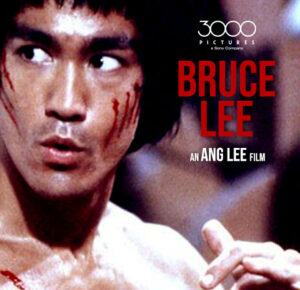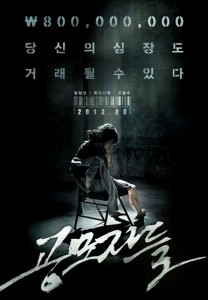
Once Upon A Time in Shanghai | Blu-ray & DVD (Well Go USA)
A fresh New Year means new goals to pursue, new adventures to enjoy, new people to meet and new memories to create. Most importantly, it means adding some new titles to your Blu-ray & DVD collection – so let us help you with this priority!
The month of January is jam-packed with titles that every martial arts/Asian/Action film enthusiast will appreciate: The Sword of Doom, Once Upon a Time in Shanghai, Revenge of the Green Dragons, Falcon Rising, Why Don’t You Play in Hell? and much more!
If you’re interested in purchasing any of the titles, we’re hoping you’ll click on our Amazon.com links to support cityonfire.com!
The Sword of Doom: January 6, 2015
Criterion presents the Blu-ray & DVD for Kihachi Okamoto’s The Sword of Doom. Tatsuya Nakadai and Toshiro Mifune (Seven Samurai) star in the story of a wandering samurai who exists in a maelstrom of violence. A gifted swordsman plying his craft during the turbulent final days of shogunate rule in Japan, Ryunosuke (Nakadai) kills without remorse or mercy. It is a way of life that ultimately leads to madness. Features: HD digital restoration, with uncompressed monaural soundtrack (Blu-ray edition); commentary by historian Stephen Prince; trailer; essay by critic Geoffrey O’Brien.
The Guest: January 6, 2015
Universal presents the Blu-ray & DVD for The Guest, directed by Adam Wingard (You’re Next) and starring Dan Stevens, Sheila Kelley and Maika Monroe. A soldier (Stevens) introduces himself to the Peterson family, claiming to be a friend of their son who died in action. After the young man is welcomed into their home, a series of accidental deaths seem to be connected to his presence. See for yourself why The Guest has received critical acclaim by both critics and audiences everywhere (except us).
The Art of War: January 13, 2015
Warner presents the Blu-ray for The Art of War, starring Wesley Snipes (The Blade Trilogy), Marie Matiko (The Corruptor), Cary-Hiroyuki Tagawa (Mortal Kombat), Michael Biehn (Terminator), Donald Sutherland (Hunger Games), James Hong (Big Trouble in Little China), Glen Chin (Knock-Off) and Ron Yuan (The Girl from the Naked Eye).
The Scorpion King 4: Quest for Power: January 13, 2015
Universal Presents the Blu-ray & DVD for The Scorpion King 4: Quest for Power, starring Victor Webster as Mathayus. The Scorpion King 4 features a medley of real-life fighters: Roy “Big Country” Nelson, Royce Gracie, Antonio “Big Foot” Silva, Don “The Dragon” Wilson, and Eve Torres. The film also stars Rutger Hauer, Michael Biehn, Barry Bostwick, Lou Ferrigno, Ellen Hollman, M. Emmet Walsh, and Will Kemp.
Once Upon a Time in Shanghai: January 13, 2015
Well Go USA presents the Blu-ray & DVD for Once Upon a Time in Shanghai, a martial arts film directed by Wong Ching Po (Let’s Go!) with action choreography from the legendary Yuen Woo-ping (The Matrix). The plot involves a laborer who moves to Shanghai in the hope of becoming rich, but ends up using his kung fu skills to survive. The cast includes Phillip Ng (Bodyguards & Assassins), Andy On (Special Identity), Luxia Jiang (True Legend) and Sammo Hung (Kill Zone). Don’t miss our review.
Weapon of Choice: January 13, 2015
Anderson Digital presents the DVD for Weapon of Choice (aka Fist to Fist 2), starring Master Jino Kang, who holds a black belt in Hapkido, Tae Kwon Do, Kyokoshin-Kai Karate and Gracie Jiu-Jitsu. The film follows (read our review) a retired assassin named Jack Lee (Kang) who must rescue his “daughter” (Kelly Lou Dennis) from a notorious crime boss (Douglas Olsson) and his crew of gangster hitmen. With a little help from a lovely rogue cop (Katherine Celio), Jack becomes a one-man kill squad who is determined to get his daughter back by any means necessary.
Revenge of the Green Dragons: January 13, 2015
Lionsgate presents the Blu-ray & DVD for Revenge of the Green Dragons, an action-drama about Chinese gangs in New York, directed by Hong Kong filmmakers Andrew Lau (Infernal Affairs) and Andrew Loo (It Had To Be You!); and produced by Martin Scorsese (The Wolf of Wall Street). Revenge of the Green Dragons stars Justin Chon (21 & Over), Kevin Wu (YouTube’s KevJumba), Harry Shum Jr. (Glee), Ron Yuan (Girl from the Naked Eye), and Eugenia Yuan (daughter of Come Drink With Me’s Cheng Pei-Pei), Jon Kit Lee (The Corruptor) and Ray Liotta (Goodfellas).
Bring Me the Head of the Machine Gun Woman: January 20, 2015
Screen Media presents the DVD for Bring Me the Head of the Machine Gun Woman, directed by Ernesto Díaz Espinoza, the Chilean action filmmaker responsible for Marko Zaror’s Mandrill, Mirageman, Kiltro and the upcoming Redeemer. Timid, video game-loving DJ Santiago (Matías Oviedo) seemingly digs his own grave when he agrees to bring a violent criminal kingpin the head of Machine Gun Woman (Fernanda Urrejola).
The Pirates: January 20, 2015
Well Go USA presents the Blu-ray & DVD for Lee Suk-Hoon’s The Pirates, an action/adventure that tells the story of rival pirates who have the common goal of capturing a gray whale that has swallowed a precious royal stamp. The Pirates stars Kim Nam-Gil (Public Enemy Returns), Son Ye-Jin (The Tower), Sulli (Punch Lady), Lee Kyoung-Young (A Company Man), Yu Hae-Jin (The Unjust) and Oh Dal-Su (Sympathy for Mr. Vengeance).
Falcon Rising: January 27, 2015
Anderson Merchandisers presents the DVD for Falcon Rising, directed by Ernie Barbarash (Assassination Games) and starring Michael Jai White (Blood and Bone, Black Dynamite). Also known as Favela or Codename Falcon 1, Falcon Rising follows an anti-hero named John “Falcon” Chapman (White) who travels to Brazil to find his sister’s killer. Along the way, he uncovers an underworld of vice and corruption, presided over by the Japanese mafia of all people.
Why Don’t You Play in Hell?: January 27, 2015
Drafthouse Films presents the Blu-ray & DVD for Why Don’t You Play in Hell? (read our review), directed by Sion Sono, the controversial and prolific director behind such Japanese-language films as Cold Fish, Love Exposure and Guilty of Romance. Why Don’t You Play In Hell? is an over-the-top mix of martial arts, comedy and gore.
Looking for new import releases?
If you’re looking for a new import release, please visit DDDhouse.com. The trusted retailer carries new and upcoming releases that are not yet available in North America.






















Be the 1st to Comment